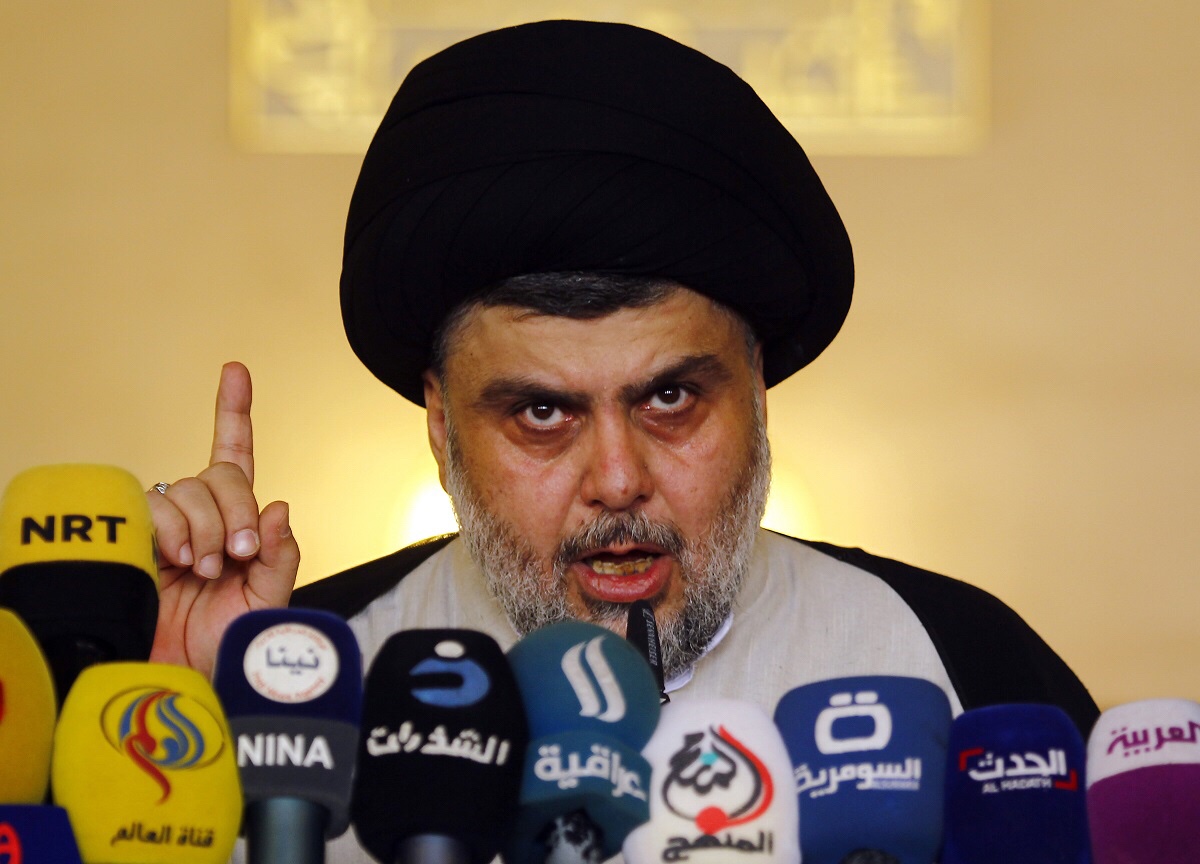 ANALYSIS: What next for Iraq’s Abadi after his ‘victory’ alliance collapses?
ANALYSIS: What next for Iraq’s Abadi after his ‘victory’ alliance collapses?Al Arabiya
The “Victory Alliance”, which brought together Iraqi Prime Minister Haider al-Abadi and the Popular Mobilization Unit (PMU) militias did not last for more than 48 hours. The “victorious” coalition was on the verge of disintegration, putting Abadi in a difficult position.
Now, Abadi, a member of the Islamic Dawa Party, is trying to find new Shiite allies.
Abadi’s Sunni allies do not form a popular base in their liberated areas that can help him get enough votes to support his coalition.
The alliances and coalitions between the Secretary General of the Islamic Dawa Party Nouri al-Maliki and the Shura Council in the party triggered different reactions. The council objected to registering the party’s name in the electoral commission under Maliki’s name, and informed him that his post was “honorary”. As such, the party decided to withdraw its participation in the elections.
On the same day that the party decided to withdraw its participation in the elections, Abadi declared the formation of a “victory coalition” that fell over and needed new alliances.
‘Falling apart’
There is no legal or constitutional provision to determine the date for forming new alliances before the elections which is scheduled to be held on May 15th of this year, so it seems that the Electoral Commission will accept the new alliances that will be announced by the political blocs.
Contrary to what is expected, the popular mobilization factions entered into an alliance with Abadi and merged under the Victory Alliance. These factions are Badr, Asaib, Ahl al-Haq, the Brigades of Imam Ali, as well as the Ataa movement.
The Victory Alliance gathered many important names, and this was an indication that it will not last long and that the victorious military alliance will keep their main coalition (Fatah), headed by Hadi Amiri including the factions of the popular mobilization forces.
An Iraqi Shiite fighter from the Popular Mobilization Unit (PMU) militias holds a position on the Tharthar frontline on the edge of Anbar province, 120 kms northwest of Baghdad, (File photo: AFP)
It seems that the withdrawal of the PMU militias from the Abadi coalition has put the latter in a corner that he is trying to escape from; nevertheless, there are those who believe that this entire scheme was planned by the commander of the Quds Force in the Iranian Revolutionary Guard Qasem Soleimani.
The Iranian general arrived in the Iraqi capital Baghdad without providing much information about the dates, the locations and the reasons for his visit. The Intel indicates that “Soleimani supervised the alliances of the Shiite political blocs, especially those close to Iran.”
After the PMU militias joined the Victory Alliance led by Abadi, Soleimani headed to Baghdad in a secret visit, as it is usually the case. The sources said, “Soleimani planned to withdraw the factions close to Iran in a move to overthrow Abadi.”
Seeking other alliances
Abadi is now looking for an alliance with the leader of the Sadrist movement Moqtada al-Sadr, but the first delegation, which arrived in the city of Hananah in the province of Najaf where Sadr’s house is located, was unable to meet him. It is believed that Sadr refused to meet with the members of the delegation.
As soon as Abadi announced the new alliance with the popular mobilization forces, many social media users expressed their anger, even those who supported him in his previous steps, when he announced his reformist plans. Iraqi social media users criticized him, and considered him like his predecessor Maliki.
Critics of Abadi, especially those who have demonstrated against corruption and cultural and media elites, criticized him for forming an alliance with suspected “corruption” figures while the prime minister promised to fight “the corrupt.”
Abadi’s recent steps appear to be a shock to those who expected to get rid of the “quota” policies that have drowned and ruined the Iraqi state system.
Analysts say that “the disintegration of the recent alliances proved that the Iranians do not want Abadi, because they consider him close to the United States, hence not an ally to Iran.”
Last Update: Wednesday, 17 January 2018 KSA 16:16 - GMT 13:16
No comments:
Post a Comment